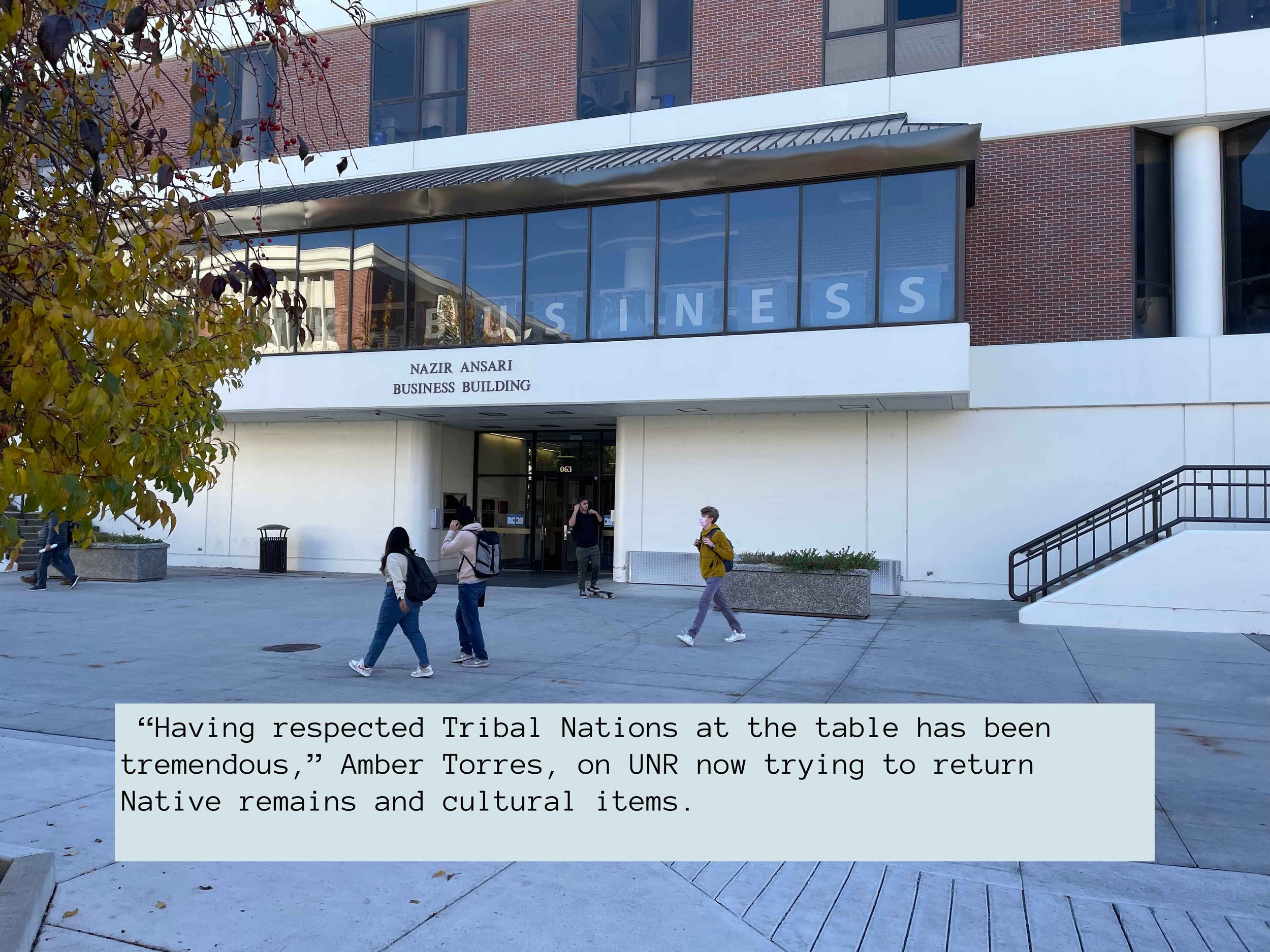In late October, the University of Nevada, Reno’s President Brian Sandoval sent out an email with a questionnaire asking deans, chairs and unit heads to “locate any previously unreported Native American Human Remains or Cultural Items” covered by the 1990 Native American Graves Protection and Repatriation Act, “to initiate the repatriation process.”
In a subsequent interview with Our Town Reno, Amber Torres, the Walker River Paiute Tribe Chairman, reacted positively to this latest breakthrough.
“It is of the utmost importance that we get the ancestral remains returned back to the rightful tribe in which the tribal citizen belonged,” Torres said, adding it is crucial that the remains get returned back to where they came from out of respect and with all the belongings they were exhumed with.
“When they’re unearthed like that,” said Torres “they can’t rest until they’re put back to where they belong.”
She is grateful that the feedback from all the Tribal Nations is not just being listened to right now, but honored and respected. Torres explained over the phone that the process has finally been moving, after years of silence. She also explained many local tribal stakeholders have been involved in the current process to help develop a plan of action that not only upholds respect, but is done in a timely manner.
The momentum shifted this past summer when UNR President Sandoval met for several hours with tribal leaders, historic preservation officers and representatives from the anthropology department.
“The most disheartening thing is whenever it has something to do with our people or our Nations, it is not being at the table,” said Torres who was present at the summer meeting. “Having respected Tribal Nations at the table has been tremendous.”
The company in charge of the transfer, California-based Cogstone Resource Management, has worked with local tribes in the past and this is something that Torres feels is important as well. When contacted for this report, the company did not immediately provide a comment on their process.
But in an email to Our Town Reno, the Dean of the College of Liberal Arts, Debra Moddelmog, who has been tasked to coordinate the effort, explained the process goes beyond the survey and repatriation.
“In addition, the University has recently posted two job announcements for positions that will advance our efforts in regard to consultation and repatriation as well as assist us in developing collaborative partnerships with local Tribes and Tribal organizations. We are searching for a Director of Community Indigenous Relations and a NAGPRA Liaison and Project Manager,” she wrote. Torres believes this is also a step in the right direction.
Moving further forward, Torres wants the community to learn as much as they can about how her ancestors were possibly dug up on a project for the gain of scientific knowledge. “Those individuals that are placed in the earth at that time are there for a purpose,” she explained. “They were buried in that spot because of a meaning with the family.” She likened it to thinking about having your grandmother or distant relatives dug up and removed from their final resting place and urges everyone to think about the impact this has on everyone involved.
“You want to make sure you have the same respect and the same ceremony that you would for anybody who expires in today’s age,” Torres said. “It’s a ritual..it’s a showing of respect.”
